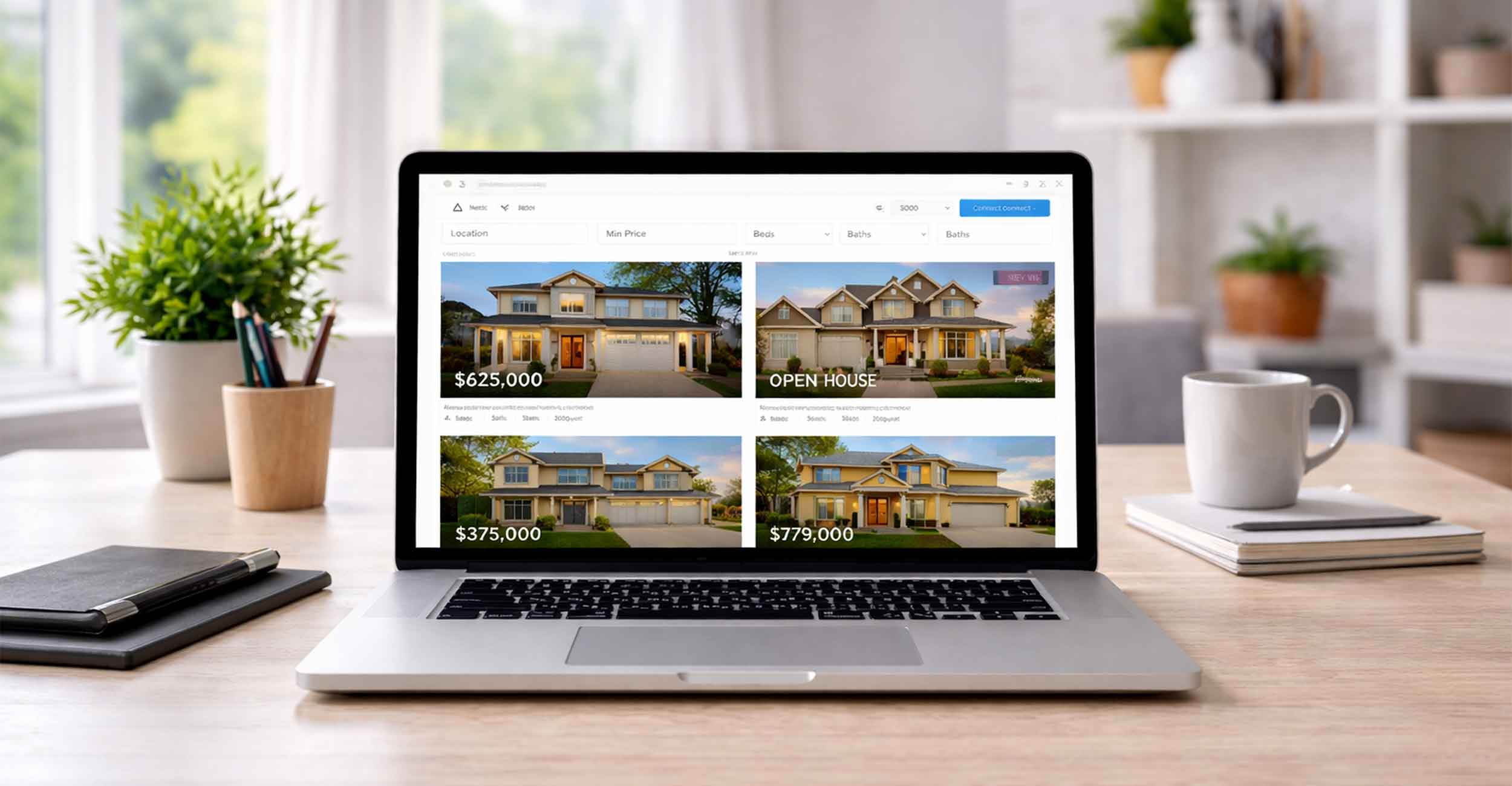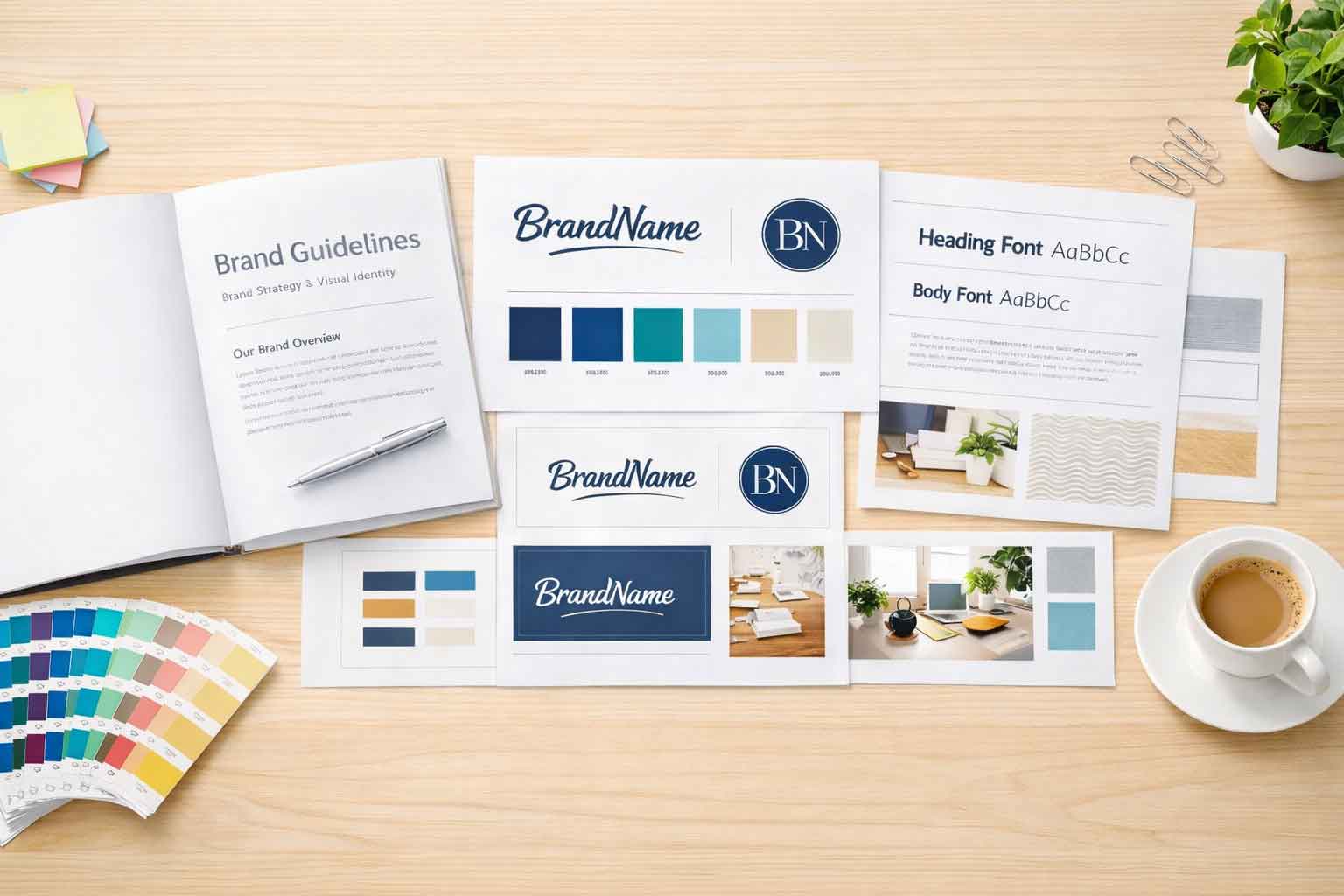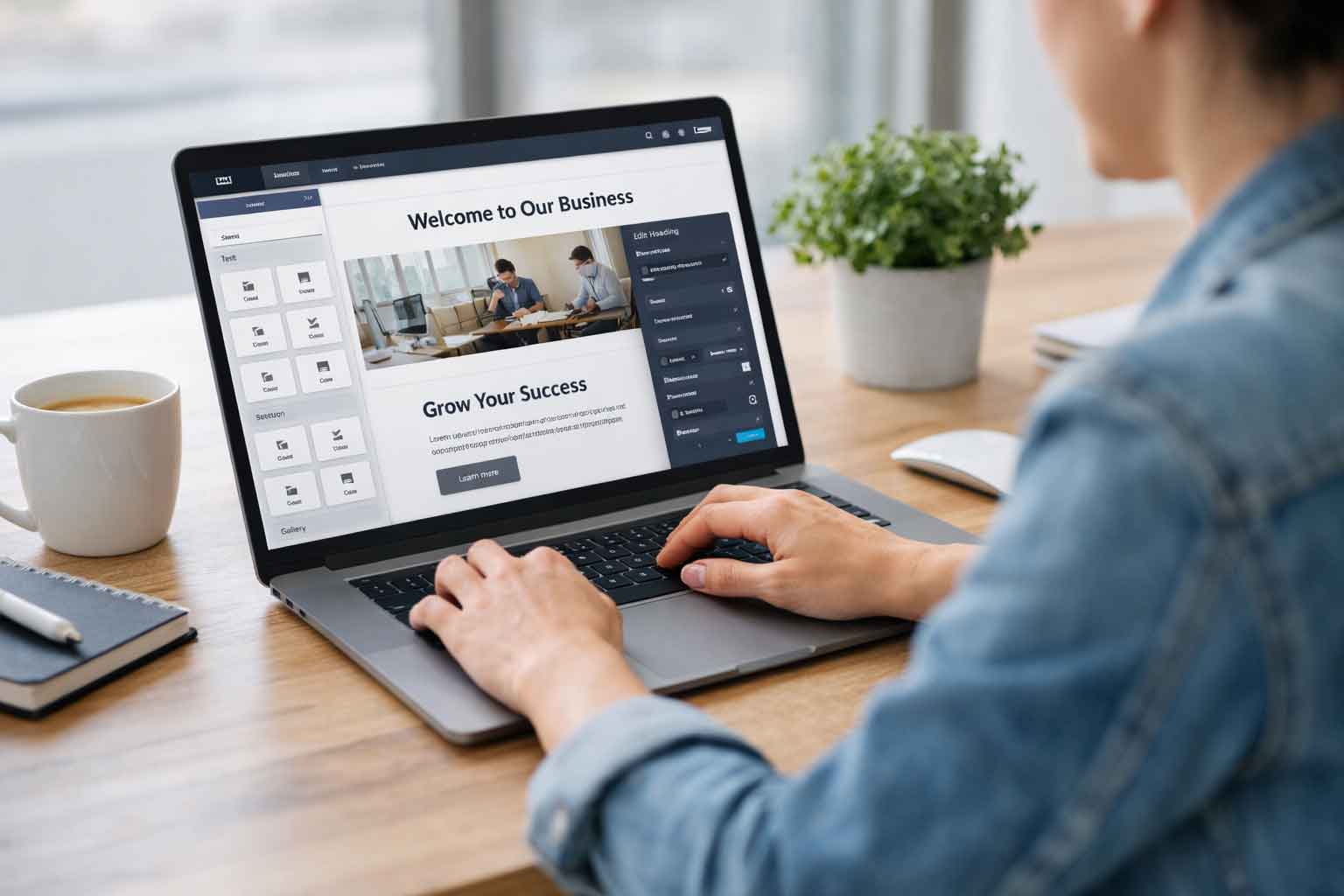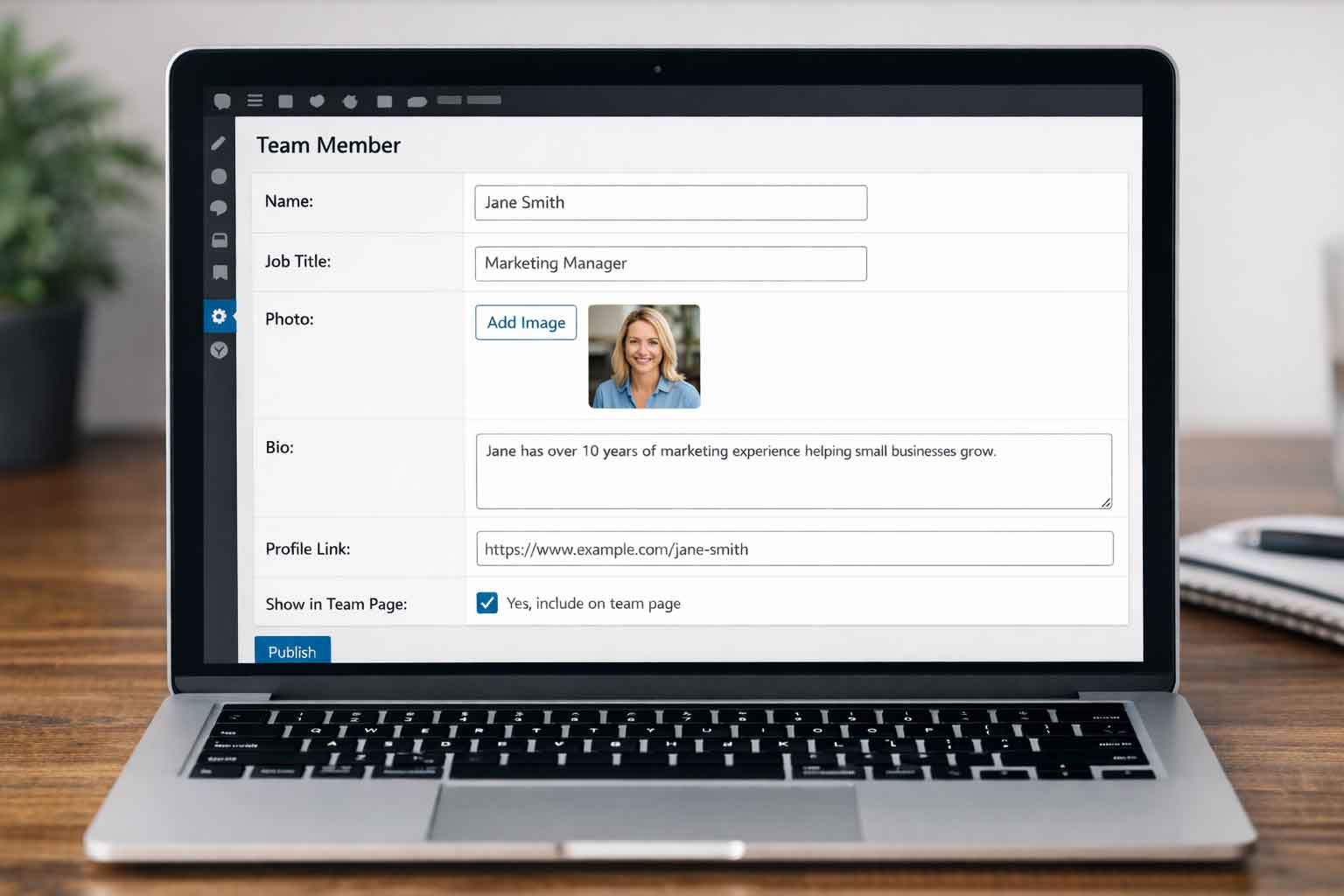Fundamental aspects when seeking the right web designer
 For any successful small business, having a strong online presence is essential in order to thrive. Your website is often the first point of contact for potential customers, serving as a virtual storefront that represents your brand. As such, it’s crucial to make a positive impression and provide an exceptional user experience. But where do you start when it comes to web design? Hiring a skilled web designer can make all the difference, and there are several important factors to consider when making your choice.
For any successful small business, having a strong online presence is essential in order to thrive. Your website is often the first point of contact for potential customers, serving as a virtual storefront that represents your brand. As such, it’s crucial to make a positive impression and provide an exceptional user experience. But where do you start when it comes to web design? Hiring a skilled web designer can make all the difference, and there are several important factors to consider when making your choice.
In this blog post, we’ll delve into the fundamental aspects that your small business should carefully evaluate when seeking the right web designer. From assessing their portfolio and experience to understanding their technical skills and communication abilities, we’ll guide you through the essential considerations that will lead to a successful partnership and a website that shines in the digital landscape.
Portfolio and Experience: Showcasing Their Expertise
 When it comes to evaluating a potential web designer for your project, delving into their portfolio is one of the primary steps to take. A portfolio is essentially a curated showcase of their past work, providing you with invaluable insights into their design style, creative prowess, and adaptability. It’s not just about checking boxes; it’s about discerning whether their artistic sensibilities align with your brand’s ethos and aesthetics. As you scrutinize their portfolio, pay particular attention to projects that closely resonate with your business’s specific needs and objectives. It’s in these parallels that you can gauge their ability to craft solutions tailored to your industry and target audience.
When it comes to evaluating a potential web designer for your project, delving into their portfolio is one of the primary steps to take. A portfolio is essentially a curated showcase of their past work, providing you with invaluable insights into their design style, creative prowess, and adaptability. It’s not just about checking boxes; it’s about discerning whether their artistic sensibilities align with your brand’s ethos and aesthetics. As you scrutinize their portfolio, pay particular attention to projects that closely resonate with your business’s specific needs and objectives. It’s in these parallels that you can gauge their ability to craft solutions tailored to your industry and target audience.
However, the portfolio is just the beginning of your evaluation journey. You must also consider the designer’s depth of experience. How many years have they dedicated to honing their craft in the ever-evolving realm of web design? This is a crucial question because, in the fast-paced digital landscape, experience equates to a wealth of knowledge and a finely tuned design acumen. Furthermore, the kinds of clients they’ve collaborated with can provide further insights into their capabilities. Have they worked with startups, local businesses, or renowned brands? Each experience contributes to their repertoire, allowing them to grasp the intricacies of design principles and, more importantly, navigate complex challenges with finesse. In essence, an experienced designer brings a profound understanding of the art and science of web design to the table, elevating your project’s potential for success.
References and Reviews: Assessing Reputation
 When it comes to selecting the right web designer for your project, the significance of references and reviews cannot be overstated. These elements serve as windows into the designer’s past work, their interactions with clients, and their capacity to deliver results that align with client expectations.
When it comes to selecting the right web designer for your project, the significance of references and reviews cannot be overstated. These elements serve as windows into the designer’s past work, their interactions with clients, and their capacity to deliver results that align with client expectations.
To begin, requesting references from the designer is a prudent first step. These references often come from past clients or employers and can offer invaluable insights into the designer’s professional conduct, work ethics, and overall performance. Taking the time to connect with these references can provide a comprehensive view of what it’s like to collaborate with the designer. In your discussions, consider probing into various aspects of their experience. Inquire about the effectiveness of communication channels, the adherence to project timelines, and the overall satisfaction with the final outcomes. This in-depth exploration allows you to gauge not only their design abilities but also their project management and interpersonal skills.
In addition to direct references, it’s advisable to conduct a broader search by examining online reviews and ratings. Platforms like Google, Yelp, or specialized design portfolio websites host a plethora of feedback from clients who have worked with the designer. These reviews offer a diverse range of perspectives on the designer’s work, professionalism, and reliability. By combing through these reviews, you can gain a more holistic understanding of the designer’s track record. Look for recurring themes or consistent praises and criticisms to pinpoint areas of strength and areas that may require more scrutiny.
In essence, the combination of direct references and online reviews allows you to construct a well-rounded portrait of the designer’s reputation and performance history. This multifaceted approach empowers you to make an informed decision, ensuring that the web designer you choose not only possesses the technical skills but also the professional integrity and client-centric approach needed for a successful collaboration.
Technical Skills and Tools: Ensuring Competence
 Web design, as a multifaceted discipline, necessitates a comprehensive set of technical skills and an adept command of the essential tools of the trade. When you’re in the process of selecting a web designer, it becomes imperative to scrutinize their technical proficiency meticulously. At the core of their skill set should lie a profound familiarity with web design software. This encompasses the ability to harness the potential of graphic design tools, prototyping software, and, of course, expertise in translating creative concepts into tangible digital assets. Moreover, their mastery should extend to coding languages that serve as the backbone of web development—HTML, CSS, and JavaScript. Proficiency in these languages is non-negotiable, as they underpin the structural and visual elements of a website, enabling it to function seamlessly across various platforms and browsers.
Web design, as a multifaceted discipline, necessitates a comprehensive set of technical skills and an adept command of the essential tools of the trade. When you’re in the process of selecting a web designer, it becomes imperative to scrutinize their technical proficiency meticulously. At the core of their skill set should lie a profound familiarity with web design software. This encompasses the ability to harness the potential of graphic design tools, prototyping software, and, of course, expertise in translating creative concepts into tangible digital assets. Moreover, their mastery should extend to coding languages that serve as the backbone of web development—HTML, CSS, and JavaScript. Proficiency in these languages is non-negotiable, as they underpin the structural and visual elements of a website, enabling it to function seamlessly across various platforms and browsers.
Beyond these fundamental technical skills, an in-depth understanding of popular content management systems (CMS) is equally vital. The designer you consider should possess the know-how to navigate CMS platforms like WordPress or Drupal with ease. These systems empower businesses to manage and update their websites efficiently, which is paramount for maintaining a dynamic online presence.
However, technical prowess doesn’t stop at software and coding proficiency. It extends to encompass an array of critical components. Therefore, during your evaluation process, delve into their familiarity with responsive design—a design approach that ensures your website adapts flawlessly to different devices and screen sizes. In an era where mobile usage is paramount, responsive design is indispensable. Furthermore, inquire about their grasp of SEO (Search Engine Optimization) best practices. A website’s visibility on search engines is paramount to its success, and an astute designer should be well-versed in optimizing content, metadata, and site structure to improve search engine rankings.
Lastly, but by no means least, is the consideration of web accessibility standards. Ensuring that your website is accessible to all, including individuals with disabilities, is not just a moral imperative but also a legal requirement in many jurisdictions. Therefore, your chosen web designer should possess the knowledge and skill to design and develop with accessibility in mind, thereby creating an inclusive online environment.
When evaluating a web designer’s technical abilities, it’s about more than just software and coding languages. It’s about assessing their capacity to craft websites that are not only visually appealing but also functional, responsive, search engine-friendly, and accessible to a diverse audience. This comprehensive technical expertise is the foundation upon which a successful web design project is built.
Communication and Collaboration: Building a Successful Partnership
 Effective communication is undeniably the linchpin of a successful web design project. It is the conduit through which ideas, visions, and expectations are conveyed and translated into tangible digital experiences. When you embark on the journey of selecting a web designer for your project, you must be vigilant in assessing their communication prowess, responsiveness, and their inclination to genuinely listen to your ideas and goals. A skilled designer not only possesses a keen artistic eye but also the ability to engage in meaningful dialogue to understand your brand’s essence, values, and aspirations. Their adeptness in this area ensures that they can not only grasp but also embody your vision, ultimately culminating in a website that not only meets but exceeds your expectations.
Effective communication is undeniably the linchpin of a successful web design project. It is the conduit through which ideas, visions, and expectations are conveyed and translated into tangible digital experiences. When you embark on the journey of selecting a web designer for your project, you must be vigilant in assessing their communication prowess, responsiveness, and their inclination to genuinely listen to your ideas and goals. A skilled designer not only possesses a keen artistic eye but also the ability to engage in meaningful dialogue to understand your brand’s essence, values, and aspirations. Their adeptness in this area ensures that they can not only grasp but also embody your vision, ultimately culminating in a website that not only meets but exceeds your expectations.
Furthermore, in the realm of web design, the collaborative dynamic between you and the designer is a pivotal factor. Beyond the technicalities of design, their approach to collaboration plays a substantial role in shaping the outcome of your project. An open attitude toward feedback and revisions is emblematic of a designer who values your input and is committed to crafting a solution that aligns seamlessly with your business objectives. A collaborative partnership isn’t merely about receiving your occasional input; it’s about involving you in the decision-making process throughout the project’s lifecycle. This dynamic empowers you to play an active role in shaping your website’s design, functionality, and overall user experience.
A web designer who excels in communication and collaboration is an invaluable asset to your project. They not only transform your ideas into a visually appealing and functional website but also ensure that your brand’s identity is authentically reflected in the digital realm. Through open channels of communication, they are not just design partners but also strategic collaborators who are dedicated to realizing your vision while infusing their expertise and creativity. This collaborative synergy yields a final product that not only meets but also often surpasses your expectations, creating a website that resonates deeply with your target audience and furthers your business goals.
Finding the ideal designer
While the four fundamental considerations are crucial for choosing the right web designer for your small business, don’t overlook practical aspects like pricing, project timelines, and post-launch services, such as maintenance and updates. Finding the ideal web designer goes beyond technical expertise; it’s about identifying a partner who grasps your unique objectives and brand identity. This collaboration should be founded on transparent pricing discussions, well-defined project timelines, and the potential for ongoing support. Take your time in this selection process to ensure a fruitful, long-term partnership that not only sets your small business apart but also helps it thrive in the ever-evolving digital landscape.









